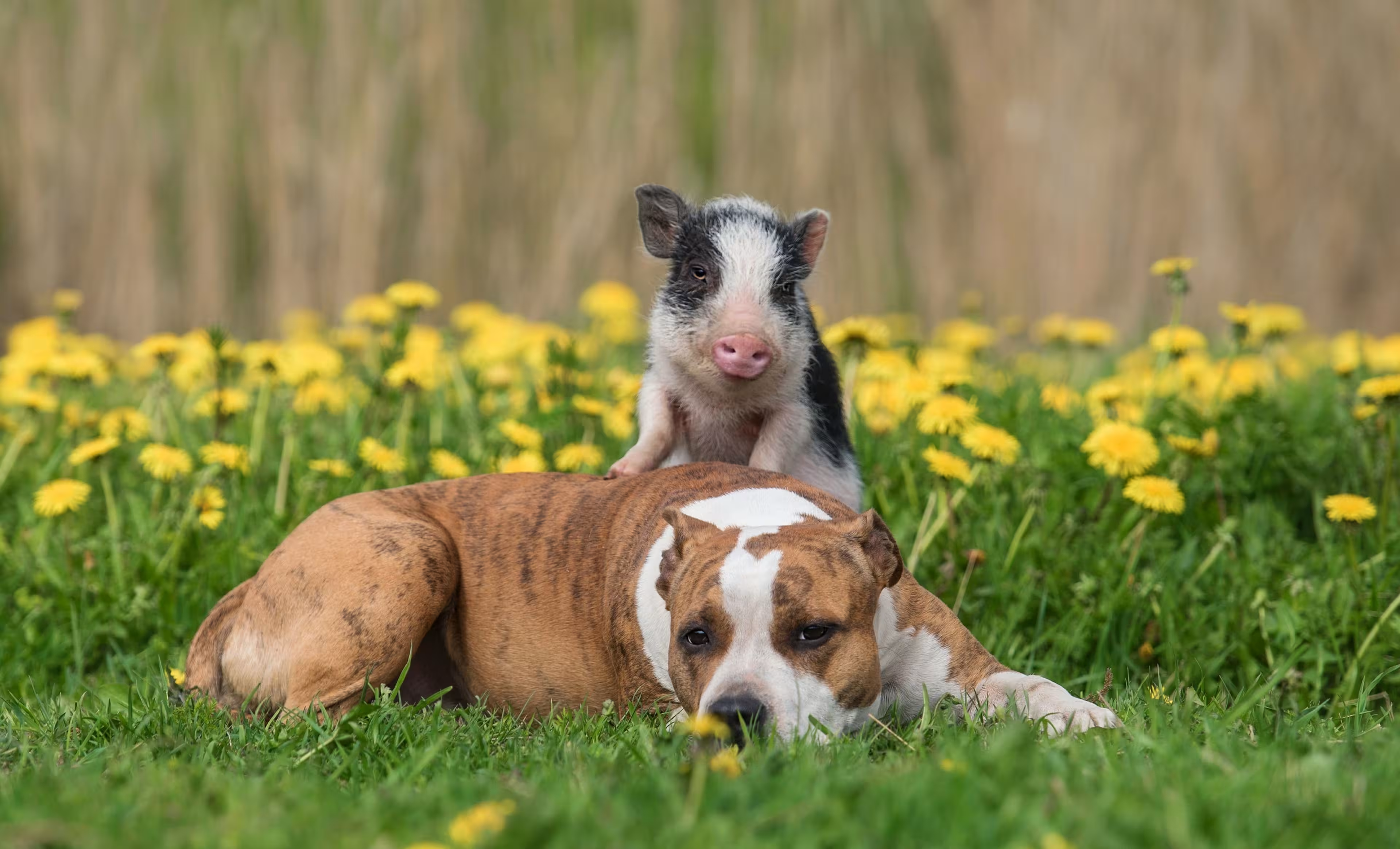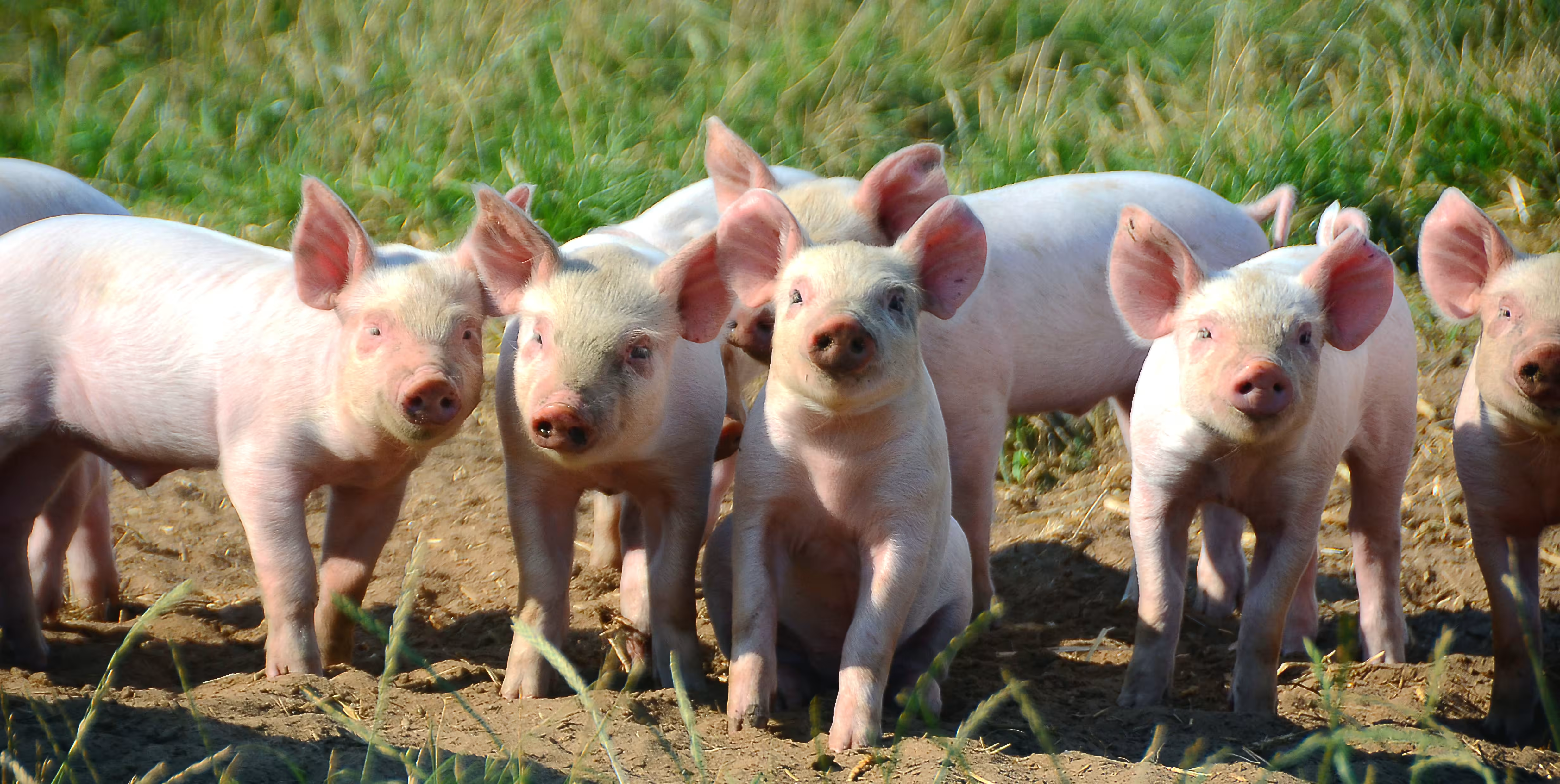How Animal Welfare Organizations Help Animals





Without animal welfare organizations, animals languishing on farms, in laboratories, and within natural habitats would have no protection from the worst abuses inflicted on them by humans.

We are living through the age of the Anthropocene, a time when human activity has become the strongest influence on the planet’s environment. We modify or raze animals' habitats; drive them from their homes; and in many cases, raise them on factory farms, where most suffer for the entirety of their shortened lives.
Animal welfare organizations act on behalf of animals who are being exploited by human beings, working to put a stop to cruel treatment. Read on to learn about what animal welfare is, why it's important, and how animal organizations fulfill their protective missions.
What is animal welfare?
Animal welfare relates to the physical and psychological state of an animal who is being dominated by human beings. Welfare can apply to captive situations, such as laboratories, zoos, and farms, and can also apply to wild animals who are hunted and killed in their natural habitats.
Wherever animals are being exploited by humans, the issue of welfare is present. While the concept of welfare can be problematic for some people who would rather see animals liberated from human captivity and use, it aims to provide animals with as much comfort and compassion as possible during exploitation.
Is animal welfare important?
Without animal welfare, people would be given free rein to treat animals however they please—and when it comes to corporate exploitation, where the profit motive far outweighs concern for animal suffering, the situation could be very bad for animals.
Until an amendment to the Animal Welfare Act was passed in 1970, laboratories across the United States were not required to provide animals with anesthetics or tranquilizers during invasive and often excruciatingly painful experiments. Despite the many shortcomings of the law (and other welfare regulations), it does help maintain a level of welfare that would otherwise be neglected.
Is animal welfare the same as animal rights?
While both animal welfare and animal rights deal with the state of nonhuman animals, animal rights focuses solely on liberating animals from human control, while animal welfare seeks to improve animals' living conditions, ideally as a step on the path to animal liberation. Advocating for increased living space for animals on factory farms, for example, qualifies as an animal welfare issue. But it does not preclude these same advocates from believing that animals are entitled to the same freedoms that human beings are.
The animal rights philosophy recognizes every animal's inherent right to live freely, to make decisions about their own lives, be it where to live, with whom to socialize, or when and what to eat. Though they may differ in their approaches to ending the abuse of animals, many animal rights and animal welfare advocates recognize that freedom and choice are prerequisites for a life worth living, for all species.
What is an animal welfare organization?
An animal welfare organization is dedicated to ensuring that animals are treated as humanely as possible while under human control. These organizations can combine rights advocacy and principles with welfare strategies, the result of which is sometimes referred to as animal protection.
Animal welfare groups are driven by a stated mission rather than the pursuit of profits.
As charities or nonprofit organizations, animal welfare groups are driven by a stated mission rather than the pursuit of profits. Some have narrow missions, focusing solely on ending the use of gestation crates on factory farms, for example, which confine female pigs so tightly that they cannot turn around. Others take a more broad approach, addressing a variety of issues, from marine conservation to factory farming.
Ultimately, as long as an organization is dedicated to preventing cruelty to animals, it is considered an animal welfare organization.
What do animal welfare organizations do?
Animal welfare organizations engage in an array of activities to fulfill their missions. These can include:
- Rescuing animals from situations of abuse
- Sheltering animals
- Helping lost or abandoned animals get adopted
- Political advocacy, such as writing policy or working with public officials to pass legislation
- Grassroots advocacy, like leafletting, hosting demonstrations or protests
- Public awareness campaigns, including documentaries, billboards, and social media
- Legal actions against businesses perpetuating animal cruelty
What are the Five Freedoms of Animal Welfare?
The Five Freedoms are widely considered to be synonymous with what an animal wants and needs. They originated in the United Kingdom in 1965 as part of the Brambell Report, a committee that was tasked with examining the welfare of animals held within intensive husbandry systems. The committee set out the Five Freedoms of Animal Welfare, which are as follows:
- Freedom from hunger and thirst
- Freedom from discomfort
- Freedom from pain, injury, or disease
- Freedom to express normal behavior
- Freedom from fear and distress
These standards were adopted within many countries and are understood to this day to comprise the conditions that must be satisfied for basic welfare to be achieved.
Which organizations help animals?
The Humane League is an example of an organization dedicated to ending the abuse of animals raised for food, for example by advocating for increased welfare for chickens, as well as providing education about the benefits of a plant-based diet.
There are many other types of animal organizations helping animals in other ways beyond welfare. The following are a couple examples of welfare organizations that operate more broadly:
- Greenpeace: An international environmental organization, Greenpeace was founded in 1971. It "uses non-violent creative action to pave the way towards a greener, more peaceful world... to confront the systems that threaten our environment."
- The Jane Goodall Institute: Named after Dr. Jane Goodall, the pioneering primatologist, ethologist, and anthropologist, the Institute focuses on protecting the great apes, including chimpanzees and gorillas, as well as their habitats in the wild, and aims at fostering greater understanding and compassion for animals.
- The American Society for the Prevention of Cruelty to Animals (ASPCA): This welfare organization was the first humane society to be established in North America. It focuses on anti-cruelty missions by exposing and legislating against animal cruelty, as well as improving welfare within industries such as dog breeding. The ASPCA also provides shelter for lost or abandoned companion animals and helps facilitate adoptions into loving homes.
What can you do?
Because animal protection, in all its forms, remains such a contentious issue, the movement required to effect real change must constantly be expanding in size and influence. This is why animal welfare organizations are always on the lookout to work with talented, passionate people who are eager to contribute their time to further the mission.
At The Humane League, there are several ways you can get involved. Join the Fast Action Network, which can allow you to take part in various impactful online activities, such as signing petitions, emailing decision-makers, or applying pressure via social media. You can also keep an eye on our Events page to see what’s happening in your area (or, for the immediate future, online). Finally, and crucially, you can volunteer with us.
Animals often get a raw deal at the hands of humans, since they are used and abused for food, clothing, and other conveniences. Without animal welfare organizations, the nonhumans languishing on farms, in laboratories, and within threatened natural habitats around the globe would have no protection from the corporate greed that sadly defines the bulk of the human-animal relationship. The movement to save animals from the worst treatment, and to help people understand why animals deserve better, is a cause worth joining.






